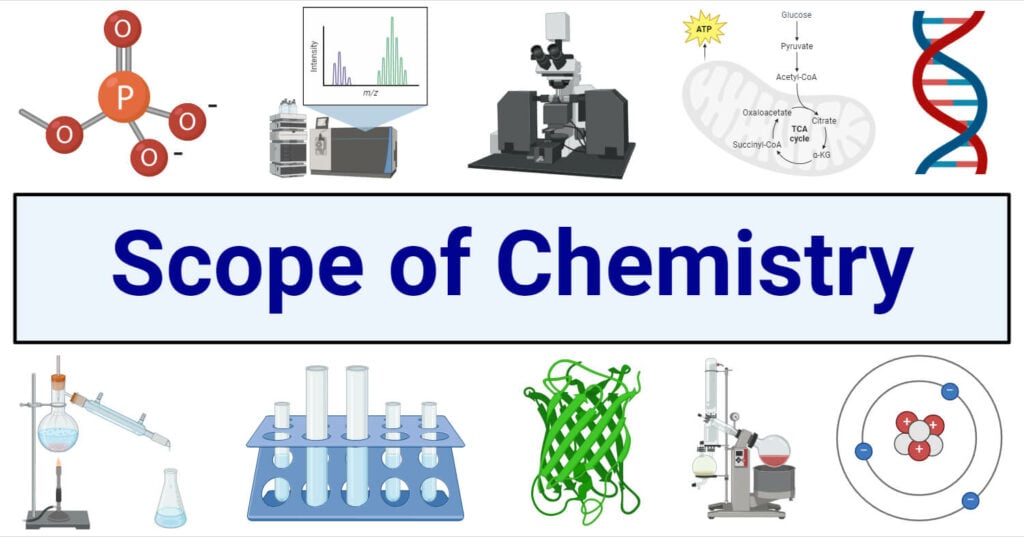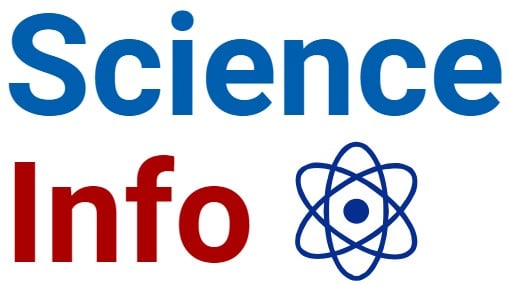Chemistry is the field of natural science that studies the structure, properties, and reactions of matter including elements and compounds. This field of science includes a wide range of topics including the composition of substances and the transformations that occur when they interact or change.

Everything in our surroundings is made up of chemicals, including the air we breathe and our food. So, chemistry plays an important role in understanding the environment around us. It has applications in different fields including food, medicine, agriculture, and the environment.
From ancient practices such as glass making and metallurgy to modern discoveries like the production of polymers, chemical processes are used in a wide range of industries. At present, chemistry continues to advance rapidly with researchers exploring materials from simple to complex biological molecules like DNA.
Historical Background of Chemistry
- Ancient Greek philosophers like Leucippus and Democritus proposed the presence of indivisible atoms. These ideas laid the groundwork for later developments in chemistry.
- The field of alchemy, which combines primitive science with philosophy and religion, significantly contributed to the emergence of chemistry. An important alchemist of the late 13th century was Geber who was the first to record methods for the preparation and use of acids and distilled alcohol. Despite its connections with fraudulent practices, the field of alchemy grew until the 17th century. It wasn’t until the early 18th century that alchemy began to separate from chemistry and became a distinct field.
- During the early 18th century, another important theory arose. The phlogiston theory, proposed by Georg Ernst Stahl, suggested that combustible materials contained a substance called phlogiston. This theory explains different processes such as combustion, calcination, and respiration. In the late 18th century, the discovery of new gases by Joseph Priestley, Henry Cavendish, and Carl Scheele challenged the phlogiston theory.
- Antoine Lavoisier made significant contributions to the field of science and his works led to the chemical revolution and the start of modern chemistry. Lavoisier identified oxygen as the active component in combustion and overturned the phlogiston theory.
- The early to mid-1800s saw several scientific inventions. During this era, John Dalton’s atomic theory further advanced the field of chemistry. John Dalton studied the behavior of gases.
- In 1811, Avogadro proposed that equal volumes of gas at the same temperature and pressure contain the same number of molecules. This principle is now known as Avogadro’s Law.
- Dmitri Mendeleev’s periodic table of elements, published in 1869, grouped elements with similar properties by arranging the known elements based on their increasing atomic masses. This led to the prediction of undiscovered elements.
- In 1897, Joseph J. Thomson discovered electrons as the fundamental components of atoms using a cathode ray tube.
- In 1911, Ernest Rutherford’s nuclear model of the atom proposed that atoms contain a small positively-charged nucleus in the center surrounded by electrons. Niels Bohr’s atomic model described electrons in the innermost level as tightly bound to the nucleus.
- Biochemistry originated from studying substances from plants and animals. The most groundbreaking discovery in 20th-century biochemistry was the structure of DNA by James Watson and Francis Crick in 1953.
- In the 21st century, chemistry continues to advance. One notable area of focus is superconductivity.
Branches of Chemistry
There are different branches of chemistry. The five main branches are:
- Organic chemistry is the field of chemistry that studies the structure and properties of organic compounds or chemical compounds containing carbon atoms. Organic compounds play a fundamental role in life processes. From simple hydrocarbons to complex biomolecules like nucleic acids, organic chemistry plays an important role in understanding the biological system. Among the different fields of chemistry, organic chemistry is the largest branch.
- Inorganic chemistry is the field of chemistry that studies inorganic compounds or compounds that do not contain carbon. Initially, scientists believed that carbon was the distinguishing factor between living and non-living things, hence, organic chemistry focused on carbon-based compounds while inorganic chemistry included the study of non-carbon compounds. The field has now evolved to include organometallic compounds and certain carbon-based molecules as well.
- Analytical chemistry is the field of chemistry that deals with the identification and quantification of chemical substances. It includes both qualitative and quantitative analysis techniques. While qualitative analysis identifies the presence of specific substances in a mixture or compound, quantitative analysis involves measuring the actual amount of a substance present. Some of the analytical techniques include extractions, spectrometry, electrophoresis, and chromatography.
- Physical chemistry is the field of chemistry that applies different concepts of physics to study the physical properties of chemicals including topics such as thermodynamics, quantum mechanics, and kinetics. This field of chemistry is important in understanding the physical characteristics of substances like pressure, temperature, solubility, viscosity, volume, and others.
- Biochemistry is the study of chemical molecules and processes that occur inside living organisms. This field uses principles of chemistry to study how life works on a molecular level. Biochemistry has explained fundamental biological principles such as the transmission of genetic information. Biochemistry also plays an important role in understanding and treating diseases. Many genetic disorders have been linked to defects in biochemical pathways.
Scope and Career Opportunities of Chemistry
The field of chemistry is a diverse field with multiple subfields to pursue. It has a wide range of career prospects in different fields including academia, research, industry, and government. Some of the career paths in chemistry are:
- Laboratory assistants support researchers by preparing test samples, recording research data, and assisting with experiments. They work in research laboratories, academic institutions, hospitals, and government agencies.
- Research scientists in chemistry conduct experiments and publish their findings in scientific journals. Career opportunities for research scientists exist in academic institutions, government laboratories, and private industry.
- Chemists perform laboratory experiments to evaluate chemicals, develop new products, and study chemical processes. Chemists can find employment in laboratories, research departments, manufacturing industries, and government agencies.
- Production chemists work in industrial production facilities to ensure the quality and safety of manufacturing processes and products. Production chemists may work in chemical manufacturing plants and pharmaceutical companies.
- Materials scientists research and study the properties of materials at the atomic levels to design new materials for different applications. Material scientists find work opportunities in industries such as aerospace, electronics, and healthcare.
- Chemistry professors conduct laboratory experiments, develop course materials, and teach chemistry at universities and colleges. Chemistry professors work in academia, pursuing tenure-track positions or teaching roles at undergraduate and graduate levels.
- Chemical engineers design and develop processes and equipment for chemical processes used in different industries including biotechnology, pharmaceuticals, and manufacturing. They work in manufacturing plants, research institutions, and consulting firms.
- Quality control specialists ensure that products meet regulatory standards. They test raw materials and finished products using different analytical techniques. Quality control specialists work in different industries including food and beverage, pharmaceuticals, cosmetics, and manufacturing.
- Environmental chemists study the effect of chemicals on the environment and develop solutions to address these effects. They work towards creating a sustainable environment and protecting the planet. They find work opportunities in research institutions, government agencies, or non-profit organizations.
- Pharmaceutical chemists research, develop and test new drugs. They study the effects of medicines on humans and animals. They conduct laboratory experiments to understand the mechanisms, safety, and efficacy of drugs. Pharmaceutical chemists find work opportunities in research institutions, pharmaceutical companies, regulatory agencies, or academia.
- Technical writers in chemistry produce various technical documents like instruction manuals and journals. They translate complex scientific data into simple understandable texts for consumers, making technical information accessible to a wider audience.
Importance of Chemistry
- Chemistry plays an important role in food production and preservation. Chemical additives, flavoring agents, and food supplements contribute to better food quality.
- Chemistry also contributes significantly to the field of medicine. It is used in the synthesis of drugs, medical devices, and diagnostic tools which are crucial for disease treatment and prevention.
- Chemistry is also used in the field of cosmetics. It is used to formulate skincare products and test their safety and efficacy.
- Chemistry also contributes to maintaining a healthy environment by developing eco-friendly processes and reducing pollution.
- Chemistry is important for developing fertilizers and creating pesticides to ensure sustainable farming practices.
- Chemistry is used in the development of different chemicals that are used in our daily lives including soaps, detergents, medicines, electronics, fuel, and textiles.
References
- 1.5: A Brief History of Chemistry – Chemistry LibreTexts
- Bagley, M. (2014, May 31). History of Chemistry | Famous Chemists. LiveScience. https://www.livescience.com/46020-chemistry-history.html
- Chemistry Careers: 2024 Guide to Career Paths, Options & Salary | Research.com
- Chemistry in Everyday Life | Importance, Applications, Real Life Examples (geeksforgeeks.org)
- Helmenstine, Anne Marie, Ph.D. (2021, August 2). The 5 Main Branches of Chemistry. Retrieved from https://www.thoughtco.com/the-5-branches-of-chemistry-603911
- Helmenstine, Anne Marie, Ph.D. (2023, April 5). Chemistry Timeline. Retrieved from https://www.thoughtco.com/timeline-of-major-chemistry-events-602166
- Job Sectors – American Chemical Society (acs.org)
- Rocke, A. J. and Usselman, . Melvyn C. (2024, April 28). chemistry. Encyclopedia Britannica. https://www.britannica.com/science/chemistry
